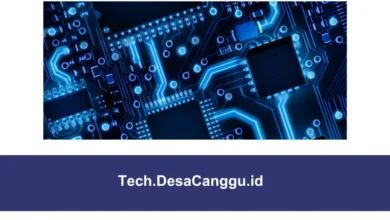Blockchain in Supply Chain Management: Implementation Strategies

Introduction
In recent years, blockchain technology has emerged as a revolutionary force with the potential to transform various industries. One of the most promising applications of blockchain is in supply chain management. Supply chains, the backbone of global trade and commerce, involve a complex network of suppliers, manufacturers, distributors, and retailers. Ensuring the efficiency, transparency, and security of these networks is crucial. Blockchain technology, with its decentralized and immutable ledger system, offers solutions to many of the challenges faced by traditional supply chains. This article delves into the strategies for implementing blockchain in supply chain management, exploring the benefits, challenges, and key considerations for successful deployment.
Understanding Blockchain Technology
Before exploring the implementation strategies, it’s essential to understand the fundamental aspects of blockchain technology. At its core, blockchain is a distributed ledger that records transactions across a network of computers in a way that ensures security, transparency, and immutability. Each block in the blockchain contains a list of transactions, and once a block is added to the chain, it cannot be altered without altering all subsequent blocks, which requires consensus among the network participants.
Key Features of Blockchain:
- Decentralization: Unlike traditional centralized systems, blockchain operates on a peer-to-peer network, reducing the need for intermediaries.
- Transparency: All participants in the network can view the transactions, promoting transparency and trust.
- Security: Cryptographic techniques secure the data on the blockchain, making it resistant to tampering and fraud.
- Immutability: Once recorded, transactions cannot be altered, ensuring a permanent and tamper-proof record.
The Role of Blockchain in Supply Chain Management
Supply chain management involves the coordination of production, shipment, and delivery of goods from the point of origin to the final consumer. Traditional supply chains are often plagued by issues such as lack of transparency, inefficiencies, fraud, and difficulty in tracking products. Blockchain can address these challenges by providing a transparent, secure, and efficient way to record and share information across the supply chain.
Benefits of Blockchain Implementation in Supply Chain:
- Enhanced Transparency: Blockchain allows all participants to access and verify the same version of the truth, reducing disputes and enhancing trust.
- Improved Traceability: Products can be tracked in real-time from origin to destination, ensuring authenticity and reducing counterfeiting.
- Increased Efficiency: Automated processes and smart contracts can streamline operations, reducing delays and costs.
- Greater Security: The decentralized and encrypted nature of blockchain makes it difficult for unauthorized parties to alter records.
- Sustainability: Blockchain can help verify and promote sustainable practices by providing a transparent record of a product’s journey and production methods.
Implementation Strategies for Blockchain in Supply Chain Management
Implementing blockchain in supply chain management requires careful planning and execution. Below are the key strategies to consider:
1. Define Clear Objectives
The first step in blockchain implementation is to define clear objectives. Understanding what you aim to achieve with blockchain is crucial for a successful deployment. Common objectives include improving transparency, enhancing traceability, increasing efficiency, and ensuring data security.
2. Conduct a Feasibility Study
Before diving into implementation, conduct a feasibility study to assess whether blockchain is the right solution for your supply chain. This involves analyzing the current supply chain processes, identifying pain points, and evaluating the potential benefits and challenges of blockchain adoption.
3. Choose the Right Blockchain Platform
Selecting the appropriate blockchain platform is critical. There are various platforms available, each with its own set of features and capabilities. Some popular blockchain platforms for supply chain management include:
- Ethereum: Known for its smart contract functionality, Ethereum is a popular choice for supply chain applications.
- Hyperledger Fabric: An open-source blockchain platform designed for enterprise use, Hyperledger Fabric offers modular architecture and high levels of privacy and scalability.
- IBM Blockchain: Built on Hyperledger Fabric, IBM Blockchain provides tools and services tailored for supply chain solutions.
- VeChain: Specifically designed for supply chain management, VeChain offers features such as IoT integration and anti-counterfeiting measures.
4. Develop a Comprehensive Implementation Plan
A comprehensive implementation plan should outline the steps, timeline, resources, and stakeholders involved in the blockchain project. Key components of the plan include:
- Project Scope: Define the scope of the blockchain project, including the specific processes and participants involved.
- Timeline: Establish a realistic timeline for each phase of the implementation, from initial planning to full deployment.
- Budget: Allocate a budget for the project, considering costs such as technology, training, and ongoing maintenance.
- Stakeholders: Identify key stakeholders, including suppliers, manufacturers, distributors, and customers, and engage them throughout the process.
5. Design and Develop the Blockchain Solution
Once the plan is in place, the next step is to design and develop the blockchain solution. This involves:
- Smart Contracts: Develop smart contracts to automate and enforce business rules and agreements. Smart contracts are self-executing contracts with the terms directly written into code.
- Integration with Existing Systems: Ensure seamless integration with existing supply chain management systems and technologies.
- User Interface: Create a user-friendly interface for participants to interact with the blockchain.
6. Pilot Testing
Before full-scale deployment, conduct a pilot test to validate the blockchain solution. The pilot should involve a small segment of the supply chain and focus on testing key functionalities such as data recording, smart contract execution, and system integration. Gather feedback from participants and address any issues identified during the pilot.
7. Full-Scale Deployment
After a successful pilot, proceed with the full-scale deployment of the blockchain solution. This involves rolling out the solution to all participants in the supply chain and ensuring they are adequately trained. Monitor the deployment closely to identify and resolve any issues that arise.
8. Continuous Improvement
Blockchain implementation is not a one-time event. Continuously monitor the performance of the blockchain solution and gather feedback from participants. Use this information to make improvements and enhancements. Stay updated with advancements in blockchain technology and explore opportunities to integrate new features and capabilities.
Challenges and Considerations in Blockchain Implementation
While blockchain offers significant benefits for supply chain management, its implementation is not without challenges. Key considerations include:
1. Scalability
Blockchain networks can face scalability issues, particularly when dealing with a large number of transactions. Ensuring the network can handle the volume of transactions in a supply chain is critical. Solutions such as sharding, off-chain transactions, and Layer 2 scaling techniques can help address scalability challenges.
2. Data Privacy
While transparency is a key feature of blockchain, it can also raise concerns about data privacy. Supply chain participants may be reluctant to share sensitive information on a public blockchain. Implementing permissioned blockchains, where access to data is restricted to authorized participants, can address privacy concerns.
3. Interoperability
Supply chains often involve multiple parties using different systems and technologies. Ensuring interoperability between blockchain solutions and existing systems is essential for seamless integration. Standardization and the development of interoperability protocols can help address this challenge.
4. Regulatory Compliance
Compliance with regulations and standards is crucial in supply chain management. Blockchain solutions must adhere to industry-specific regulations, such as food safety standards, environmental regulations, and trade compliance. Engaging with regulatory authorities and ensuring the blockchain solution meets compliance requirements is essential.
5. Change Management
Implementing blockchain in supply chain management involves significant changes in processes and practices. Ensuring stakeholder buy-in and managing resistance to change is critical. Providing adequate training and support to participants can facilitate a smooth transition to the new system.
Future Trends in Blockchain and Supply Chain Management
As blockchain technology continues to evolve, several trends are likely to shape its future in supply chain management:
1. Integration with IoT and AI
The integration of blockchain with Internet of Things (IoT) and Artificial Intelligence (AI) technologies can further enhance supply chain management. IoT devices can provide real-time data on the location and condition of products, while AI can analyze this data to optimize operations and predict potential issues. Blockchain can provide a secure and transparent record of this data, enabling more efficient and proactive supply chain management.
2. Blockchain-as-a-Service (BaaS)
Blockchain-as-a-Service (BaaS) platforms are emerging as a way for businesses to deploy blockchain solutions without the need for extensive expertise in blockchain development. BaaS platforms offer pre-built blockchain frameworks and infrastructure, allowing organizations to focus on implementing solutions rather than managing blockchain infrastructure.
3. Sustainability and Ethical Sourcing
Blockchain technology can play a pivotal role in promoting sustainability and ethical sourcing practices in supply chains. By providing transparent and immutable records of product origins and processes, blockchain enables consumers to make informed decisions based on ethical considerations such as fair trade, labor conditions, and environmental impact. Companies can use blockchain to verify and showcase their commitment to sustainable practices, thereby enhancing brand reputation and consumer trust.
4. Supply Chain Finance
Blockchain has the potential to revolutionize supply chain finance by enabling more efficient and transparent financing options. Traditionally, supply chain finance involves complex processes and high transaction costs. Blockchain-based solutions can streamline these processes by providing real-time visibility into transactions, reducing paperwork, and automating payment settlements through smart contracts. This can unlock liquidity, reduce financing costs, and improve cash flow for all parties involved in the supply chain.
5. Governance and Standards
As blockchain adoption in supply chain management grows, establishing governance frameworks and industry standards will become increasingly important. Standardization can facilitate interoperability between different blockchain platforms and ensure compliance with regulatory requirements. Industry consortia and organizations are working towards developing common standards and protocols to promote the widespread adoption and scalability of blockchain solutions in supply chain management.
Conclusion
Blockchain technology holds immense promise for transforming supply chain management by enhancing transparency, traceability, efficiency, and security. Implementing blockchain in supply chains requires careful planning, collaboration, and consideration of various factors such as platform selection, data privacy, scalability, and regulatory compliance. Successful implementation involves defining clear objectives, conducting feasibility studies, selecting the right blockchain platform, and developing a comprehensive implementation plan. Case studies demonstrate the potential of blockchain to address real-world challenges in supply chain management, from improving traceability and sustainability to streamlining global trade.
As blockchain technology continues to evolve, future trends such as integration with IoT and AI, blockchain-as-a-service platforms, and advancements in sustainability and ethical sourcing practices will further enhance its impact on supply chain management. By embracing blockchain technology, businesses can create more resilient, transparent, and efficient supply chains that meet the demands of the modern global economy.
In conclusion, while challenges exist, the transformative potential of blockchain in supply chain management is undeniable. With strategic planning, collaboration, and innovation, blockchain can revolutionize how supply chains operate, paving the way for a more connected and sustainable future.



